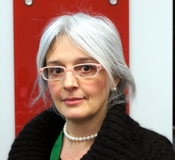In a culture where no-one enforces the law and rules are often ignored, it is difficult to persuade PCOs of the benefits of professionalism but this is the goal that ANID, the Italian pest control association has set itself, as Lorenza Brazzoduro representing ANID explained at the CEPA day held during Eurocido on 16 February.
Lorenza’s overview of developments in the Italian pest management market over the past 10 years provided some salutary lessons for the rest of Europe.
She described how ten years ago pest control operations were generally regarded as a low-level activity requiring no particular professionalism but that since the establishment of ANID, pest control has been turned into an official institution recognised by the trade unions and with the involvement of a number of universities, putting the focus clearly on professionalism.
|
However over that same time frame the market had changed radically. Ten years ago the largest share of the market was managed by local public health bodies, often with in-house pest control teams. Over time and, largely for budget reasons, these local public health authorities have almost all switched to contractors to provide their pest control services and tenders are now commonplace with the focus primarily on price. This is precisely what is beginning to happen in the UK market as reported in the January & February edition of Pest – see here. Around the same time demand for pest control services from private sector companies in the food industry began to increase driven by new laws but, importantly, also by voluntary international codes such as the BRC and IFS standards. This market segment is placing increasing demands in terms of the quality and professionalism of PCOs. |
|
|
Today the pest control service sector is subdivided into three:
This has produced what Lorenza described as a cross-eyed market. The effect is that pest control services are increasingly divided with one group of highly specialised professional operators servicing the food industry and the other group providing a low level, cheap service often paying less than union rates. The situation is made worse by the increasing number of businesses offering pest control services. “There are no barriers to entering, no big investment needed and everyone ignores the legal pre-requisites for pest control companies even the public authorities require no proof that these are being met,” she said. “The result is many small one-person companies are being established and many companies offering other services are diversifying into the pest control sector bringing even harsher price competition at the lower end of the market. All this means that pest control in Italy is in a bad situation.” Against this background it is not easy to stay on the path of training and certification, but ANID is betting on professionalism to save the day. “We are putting a lot of marketing effort into persuading PCOs of the benefits of professionalism, but by not enforcing the law, the State is not helping,” she said. “The Biocidal Products Directive may help us as certain active substances and products will be restricted to professional use and the Italian Ministry of Health is now beginning to wonder what a professional is.” Despite the economic crisis, demand for pest control services is still rising in Italy. Lorenza continued: “Maybe consumers will start to realise that paying the lowest prices for something which doesn’t do the job is not the best plan and that perhaps it is better value for money to pay more for something that gives a result.” She concluded, however, that predicting the future in Italy is difficult. “Who knows what might change? Italy is a country where anything can be expected!” |
|




